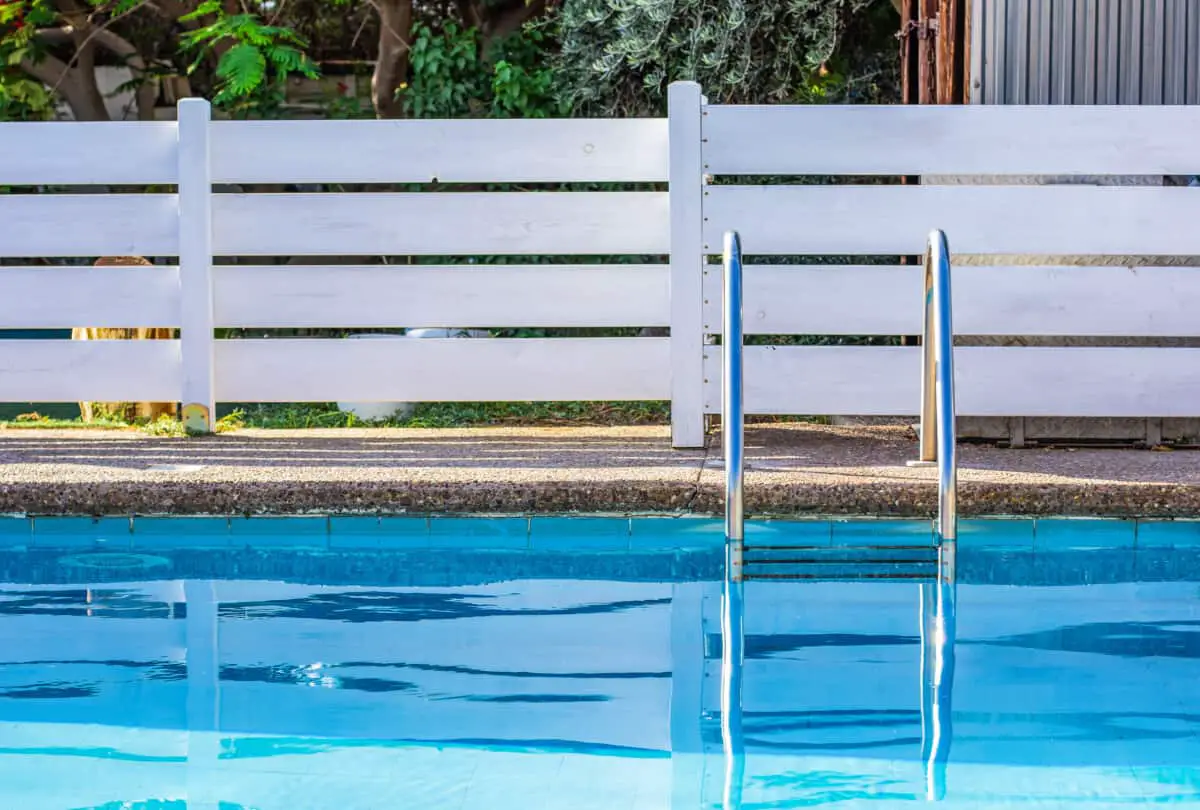Having a swimming pool at home is a good way to relax and bathe in the sun. However, it is also vital to consider installing a pool fence around it for protection and security. Although swimming pools are a great source of fun, relaxation, and bonding time, they can represent a hazard to you, your family, and even pets if they aren’t fenced or covered.
In that, a pool fence can provide safety, privacy, and convenience, and comes in different designs. It protects your pets from drowning and keeps away unwanted animals.
Before installing a pool fence, make sure that you follow the height, security, clearance, climbing prevention, and gate requirements for it. You can also check in with your local building authority for the detailed requirements applicable to your area.
In this article, we will tackle the reasons why you should consider installing a pool fence around your pool. We will also discuss pool fence requirements and other common questions asked when installing a pool fence.
Reasons to Fence In a Pool
Installing a pool fence is essential to secure the safety of your children and pets. It will give you peace of mind and prevent future accidents and injuries.
According to the World Health Organization, drowning is the world’s third leading cause of unintentional injury death.
Drowning is a fast process. It only takes 20-60 seconds for a person to struggle on the water’s surface before being fully submerged by the water. A drowning person often goes unnoticed.
To prevent this kind of accident, here are six reasons to put a fence in your pool:
- For Safety
You must have a pool fence installed around your pool if you have toddlers and children who don’t know how to swim. It is even recommended if you have pets who don’t know how to swim either. Pool fences provide you with security and prevention against accidents that can result in injuries and drowning.
- For Privacy
If your backyard is open and everyone can see what you are doing in the pool, installing a fence can provide you with the privacy you want as it can prevent your nosy neighbors from eyeing your pool area.
This is needed if you don’t like to be seen in a swimsuit or simply dislike being watched by your neighbors. If you are curious if skinny dipping is legal read this article.
- Required by the Law
Many places are now requiring pools to have a pool fence due to safety hazards, although this depends on the jurisdiction you live in. Therefore, make sure to look up if there are any pool fence regulations in your area.
- For Convenience
If a pool fence isn’t available, you can opt for a pool net or cover, although those aren’t easy and simple to use. However, you must remember to replace them after use as they can be heavy and unwieldy to use.
While a pool fence requires no effort and is effective due to its lock protection feature, make sure to choose one with is an entirely child-proof lock. Unlike pool covers, you don’t need to take the cover off if you want to use the pool.
- Flexible in Its Design
Pool fences come in various materials, styles, and measurements. Most laws require a 4-foot fence around the pool, giving you a good lookout while keeping children and pets out. But, you can still choose the design you prefer and go for higher fences for more privacy. Pool fences can’t feature big gaps through with a child could get, so most of the designs are mainly privacy fence types.
Also, pool fences are manufactured in a way that enables complete visibility. In this way, people can see who is in the pool from the outside and swimmers can also see who’s outside the perimeters of the pool area.
- Protect Pets and Keeps Critters Out
While most dogs can swim, some breeds can’t. The same goes for felines and other animals. In that, pool fences provide cover and protection not only to children but also to your beloved pets. We recommend having a 5-foot-or-higher fence to prevent your pets from jumping over. You can customize your pool fence by using durable vinyl that’s resistant to biting or clawing.
A pool fence also keeps unwanted animals from visiting the perimeter around your pool. Although it may be cute to see wildlife sipping a drink in your pool, it is best to keep them away for the water in your pool isn’t safe for them.
Types of Residential Pools that Require Fences
Here are some types of residential pool that require fences:
- In-ground swimming pools, whether completely or partially in-ground, should be enclosed by a pool fence.
- A pool fence usually is 18-24 inches deep minimum. Check the exact depth in your local code for above-ground pool installations that may require fencing depending on the water’s depth.
- Outdoor spas and hot tubs must have a fence or cover depending on how deep the water is.
- Portable pools, on the other hand, don’t require you to put up fences. However, make sure to cover, disperse the water, and store your portable pool after using it.
Basic Pool Fence Requirements
Before installing your pool fence, make sure to follow the requirements. You can check or ask your local building authority for pool fencing laws in your area. Here are the basic and standard pool fence requirements.
- Height
The standard and required height for a pool fence is 4 feet. Some homeowners have 5-foot fences for extra security and protection.
- Security
Equip any door and window with an alarm that leads directly from the house to the pool, and install a pool cover when your home serves as the fourth wall of the fence.
- Clearance
To prevent children and pets from going through underneath, the standard fence clearance is 4 inches maximum, and 2 inches on a non-solid surface like gravel.
- Climbing Prevention
Keep materials like pool pumps, planters, and other large objects that a kid could climb on away from the fence’s exterior. There shouldn’t be any footholds and handholds around the outer side of the fence.
Follow the allowable measurements for the opening and spacing of installing a fence.
- Gate and Materials
When putting up your pool fence, make sure it is self-closing and self-latching to prevent kids from opening it when unattended.
There are no specific materials required for a pool fence. Although, aluminum, glass, PVC, wood, and steel are the most common and popular types for a pool fence.
Choose a corrosion-resistant material to fence a saltwater pool. To double your privacy fence, put up a barrier featuring solid and non-transparent material. If you want to show off a specific view, then the ideal material would be glass.
Do You Need a Permit for Your Pool Fence?
Yes, according to most jurisdictions, if your fence is more than 4 feet high, you will need to get a permit. You will have to make sure that the pool fence installations pass and comply with your local HOA’s regulations.
Before conducting any pool fence installation, make sure to consult your local building authority for detailed requirements applicable to your property. Also, only hire a reliable contractor with impeccable experience in installing swimming pool fences.
Conclusion
If you have a pool at home or are thinking about getting one, consider installing a pool fence. Those are vital in providing security and safety for you and your family. We recommend choosing a pool fence that gives you a clear view from your yard or home and acts as a safe and secure barrier.

